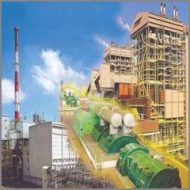The revised draft of the Direct Taxes Code would now induce more and more companies to set up their units in the special economic zones before March 31, 2011 as the government has made it clear that it wants to do away with the present provision under which the companies enjoy a 15-year tax exemption.
 Under Section 10 AA of the Income Tax Act, SEZs are given 100 per cent tax exemption for the first five years, 50 per cent for the next five years and 50 per cent of the ploughed back export profit for the remaining five years.
Under Section 10 AA of the Income Tax Act, SEZs are given 100 per cent tax exemption for the first five years, 50 per cent for the next five years and 50 per cent of the ploughed back export profit for the remaining five years.
The discussion paper, which has been released for stakeholders' comments till the end of this month by the finance ministry, suggested that existing units and those which would be approved before March 31, 2011 would continue to enjoy the tax holiday according to the present norms. However, it has remained silent on the issue of what sort of incentives they would be subjected to after the implementation of DTC from April 1, 2011.
"The first draft paper had already said that developers would be subjected to investment-linked incentives. The revised paper has brought in more clarity for the units. Companies would now try to set up shops in SEZs before March 31, 2011. There is no clarity on what happens after that date. They might also be subjected to similar provision as the developers. Also, it is now clear that developers as well as units would not get the MAT exemption anymore," said Hitender Mehta of Vaish Associates Advocates, a Gurgaon-based law firm.
Investment-linked tax incentives limit tax benefits on profits made by SEZ developers only after recovery of capital and revenue expenditure. It, however, excludes expenditure made on land. Thus, if the scheme is implemented, the developers would not enjoy as much benefits as under the present policy.
Mehta also said that this would largely impact units in the services sectors such as information technology, biotechnology, engineering goods and handicrafts, among others, as they have less capital investment and not for large-scale projects like the Reliance SEZ in Jamnagar (Gujarat), which have a long gestation period.
In the second draft paper on DTC, which was released here on Tuesday by Revenue Secretary Sunil Mitra, the finance ministry said the code "does not allow area-based exemptions. Area-based exemptions available under the Income Tax Act, 1961 will be grandfathered."
Rajiv Chugh, tax partner, Ernst and Young, said this would be a major setback for the SEZ policy as companies would be apprehensive in investing in these tax-free enclaves and developers would find it increasingly difficult to attract units in their SEZs.
"The government's intention is clear. It has made it amply clear that it is averse to giving such tax incentives to the SEZ units as it does currently. They should now either bring in units also under the investment-linked incentives or find out an alternative manner to give incentives if they want the SEZ development. Exemption from MAT has again become a question," Chugh said.
According to Hemal Zobalia, executive director, KPMG, the new code would result in lot of rush by corporates to establish operating units in SEZ before March 31, 2011.
"As regards existing SEZ developers, DTC had provided for grandfathering provisions i.e. protecting the deduction for the unexpired period after DTC. However, a similar provision was not there in the proposed DTC which is now sorted out in the revised discussion paper. Thus, even the existing SEZ units will be allowed to avail their tax benefits for the unexpired period post DTC," Zobalia said.
The government has so far given formal approval for setting up 574 SEZs, of which 353 have been notified. Exports from these enclaves reached Rs 2,20,711 crore (Rs 2207.11 billion) in 2009-10, up 121.29 per cent from the previous financial year.













 © 2025
© 2025